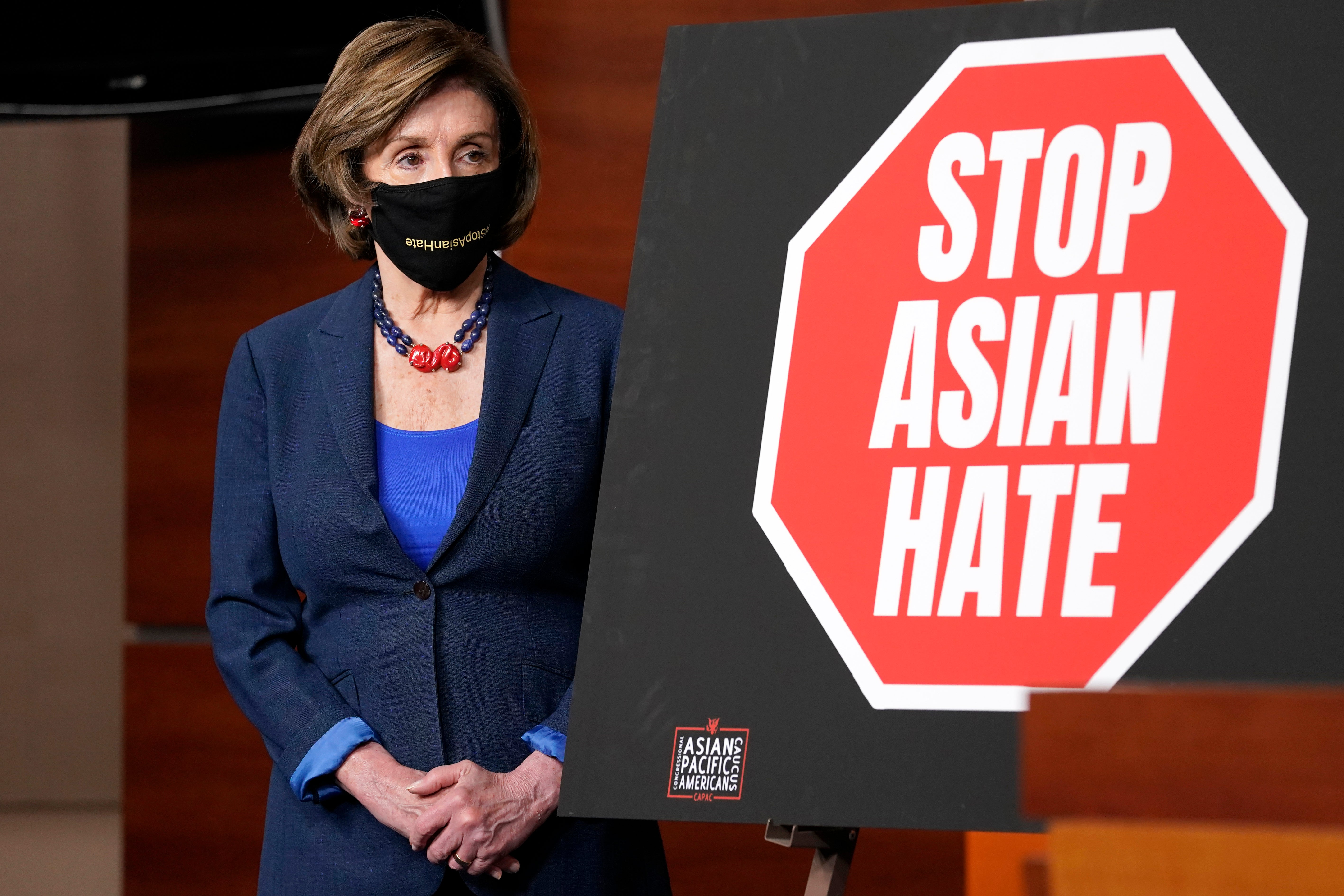Bill to fight hate crimes on Asian Americans nears approval
Congress is poised to pass legislation to combat hate crimes against Asian Americans and Pacific Islanders

Your support helps us to tell the story
From reproductive rights to climate change to Big Tech, The Independent is on the ground when the story is developing. Whether it's investigating the financials of Elon Musk's pro-Trump PAC or producing our latest documentary, 'The A Word', which shines a light on the American women fighting for reproductive rights, we know how important it is to parse out the facts from the messaging.
At such a critical moment in US history, we need reporters on the ground. Your donation allows us to keep sending journalists to speak to both sides of the story.
The Independent is trusted by Americans across the entire political spectrum. And unlike many other quality news outlets, we choose not to lock Americans out of our reporting and analysis with paywalls. We believe quality journalism should be available to everyone, paid for by those who can afford it.
Your support makes all the difference.The House is poised to pass legislation Tuesday intended to curtail hate crimes against Asian Americans and Pacific Islanders, sending a bipartisan denunciation of such violence to President Joe Biden s desk.
The bill would expedite the review of hate crimes at the Justice Department and make grants available to local law enforcement agencies to improve their investigation, identification and reporting of incidents driven by bias, which often go underreported. The measure passed the Senate 94-1 in April after lawmakers reached a compromise. Biden has said he will sign it.
“Asian Americans have been screaming out for help, and the House and Senate and President Biden have clearly heard our pleas,” said Rep. Grace Meng D-N.Y., who sponsored the bill in the House.
To many Asian Americans, the pandemic has invigorated deep-seated biases that in some cases date back to the Chinese Exclusion Act of more than a century ago. President Donald Trump repeatedly referred to the virus, which emerged in Wuhan, China, as the “China Virus” or the “Kung Flu.” And as cases of the illness began to rise in the U.S., so too did the attacks. Thousands of reported violent incidents were reported in the past year.
In February, an 84-year-old man died after he was pushed to the ground near his home in San Francisco. A young family that was injured in a Texas grocery store attack last year. And in Georgia, six Asian women were killed in March during during a series of shootings targeting workers at massage parlors. Prosecutors are seeking hate crimes charges. The women who were killed are mentioned in the text of the bill.
Rep. Judy Chu said it's painful for many to “open up the newspaper everyday and see that yet another Asian American has been assaulted, attacked and even killed."
“You start to think, ‘Well, will I be next?'” the California Democrat said.
Yet some activists, including organizations representing gay and transgender Asian Americans, say the legislation is misguided. More than 100 groups have signed on to a statement opposing the bill for relying too heavily on law enforcement while providing too little funding to address the underlying issues driving the rise in hate crimes.
“We have had hate crimes laws since 1968, it’s been expanded over and over again, and this new legislation is more of the same," said Jason Wu, who is co-chair of the GAPIMNY-Empowering Queer & Trans Asian Pacific Islanders. "These issues are about bias, but also rooted in inequality, and lack of investment and resources for our communities. Not a shortage of police and jails.”
Meng acknowledged some of the concerns raised by the groups, but countered that the widespread underreporting of hate crimes needs to be addressed.
“Law enforcement is currently under reporting these kinds of incidents and it makes it easy to ignore hate crimes all together,” she said.